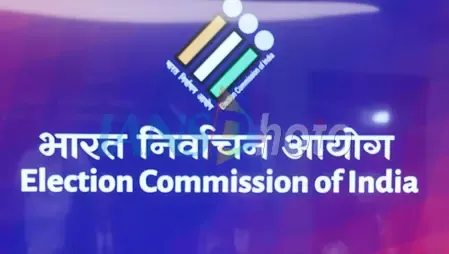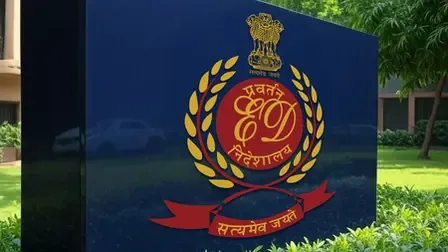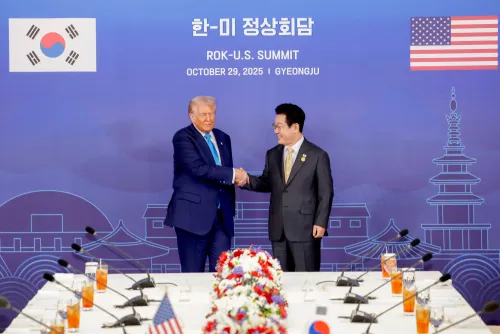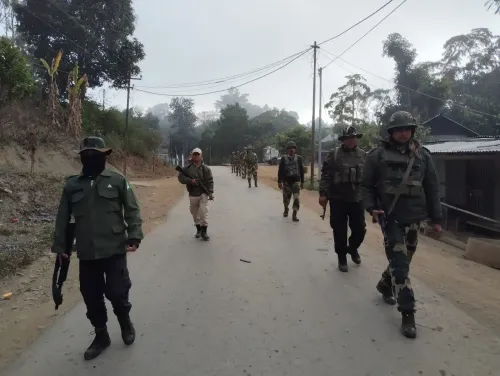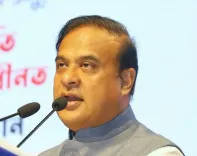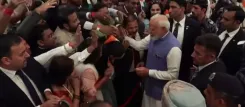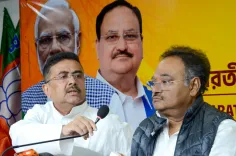Will the Awami League face a ban from the Bangladesh Election Commission?
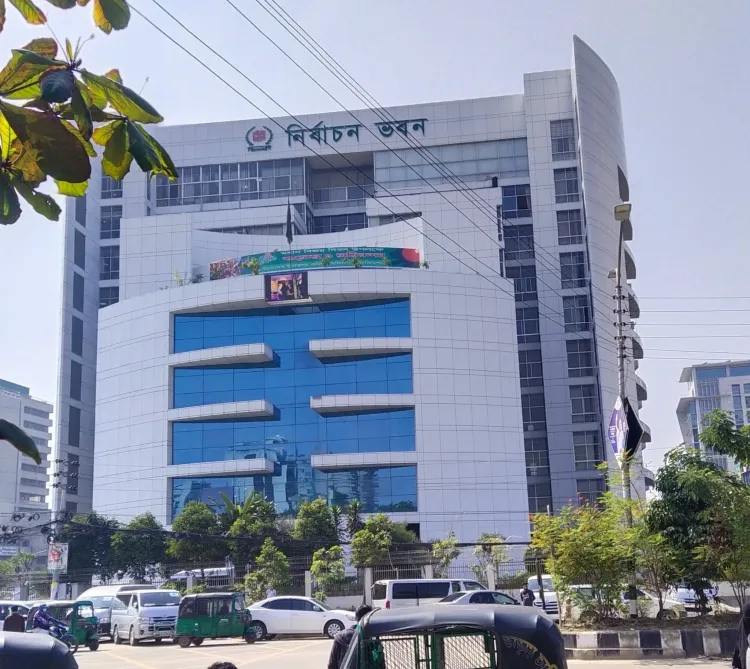
Synopsis
Key Takeaways
- The Election Commission awaits an official gazette to act on the Awami League.
- The interim government has imposed a ban under the Anti-Terrorism Act.
- Political protests demanding the ban have occurred recently.
- Arrest warrants have been issued against key figures from the Awami League.
- Concerns have been raised about the implications for democratic processes.
Dhaka, May 12 (NationPress) The Chief Election Commissioner (CEC) AMM Nasir Uddin has stated that the Election Commission (EC) will undertake suitable actions regarding the Awami League's operations once the official gazette or document banning the party is received.
This announcement came after the interim government led by Muhammad Yunus declared a ban on all activities of the Awami League under the Anti-Terrorism Act until the trial of the party and its leaders at the International Crimes Tribunal is concluded, according to local news outlets.
“Upon receiving the government's official notification, we will proceed accordingly. A meeting is scheduled for Monday to determine the next steps,” the CEC mentioned in an interview with a Bangladeshi television network on Sunday.
The CEC emphasized that the election authority cannot make decisions based on reports from newspapers or television.
In another development, Law, Justice, and Parliamentary Affairs Advisor Asif Nazrul announced the ban on former Prime Minister Sheikh Hasina's party, the Awami League, following an emergency Advisory Council meeting held on Saturday night.
“The Advisory Council has resolved that all activities of the Bangladesh Awami League, including online engagements, will be suspended under the Anti-Terrorism Act until the conclusion of the trial at the International Crimes Tribunal,” stated Law Advisor Asif Nazrul.
Local media reports indicate that the Anti-Terrorism Act, enacted in February 2009, was designed to establish protocols for preventing specific terrorist acts and ensuring effective penalties.
To achieve the objectives of the act, the government may declare individuals or entities involved in terrorist activities as prohibited, issuing notifications in the official gazette.
However, the current legislation lacks provisions for banning the activities of any entity, necessitating amendments scheduled for May 12, according to an announcement by the interim government.
Reports suggest that last week various student groups, radical Islamist parties, and leaders from the newly established National Citizen Party protested, first staging a sit-in outside the chief advisor's residence and later assembling at Shahbag, Dhaka, demanding an immediate ban on the Awami League.
Simultaneously, Bangladeshi investigative authorities submitted a report against Hasina, along with former Home Minister Asaduzzaman Khan Kamal and former Inspector General of Police Chowdhury Abdullah Al-Mamun, in a case concerning “genocide” charges from last July’s mass uprising.
The report was presented to the tribunal's chief prosecutor's office on Monday, as Chief Prosecutor Mohammad Tajul Islam announced during a press conference.
Since the Yunus-led interim government assumed power in August last year, multiple arrest warrants have been issued against the former Prime Minister, her relatives, and supporters of the Awami League.
In the previous month, a tribunal in Bangladesh issued an arrest warrant for Hasina and four others, including former Inspector General of Police (IGP) Benazir Ahmed, in connection with alleged mass killings at Shapla Chattar in Dhaka in 2013.
Earlier, in January, a special tribunal in Dhaka ordered an arrest warrant for Hasina and 11 others regarding instances of enforced disappearances.
Ironically, this tribunal was established by Hasina's government under the International Crimes (Tribunals) Act to prosecute individuals responsible for genocide, crimes against humanity, war crimes, and other offenses under international law that were committed during the 1971 Liberation War, with the assistance of local collaborators.
Analysts view these recent developments as a continuation of the political vendetta the interim government led by Yunus has against the former Prime Minister and her supporters, aiming to exclude the Awami League from participating in the national elections.


